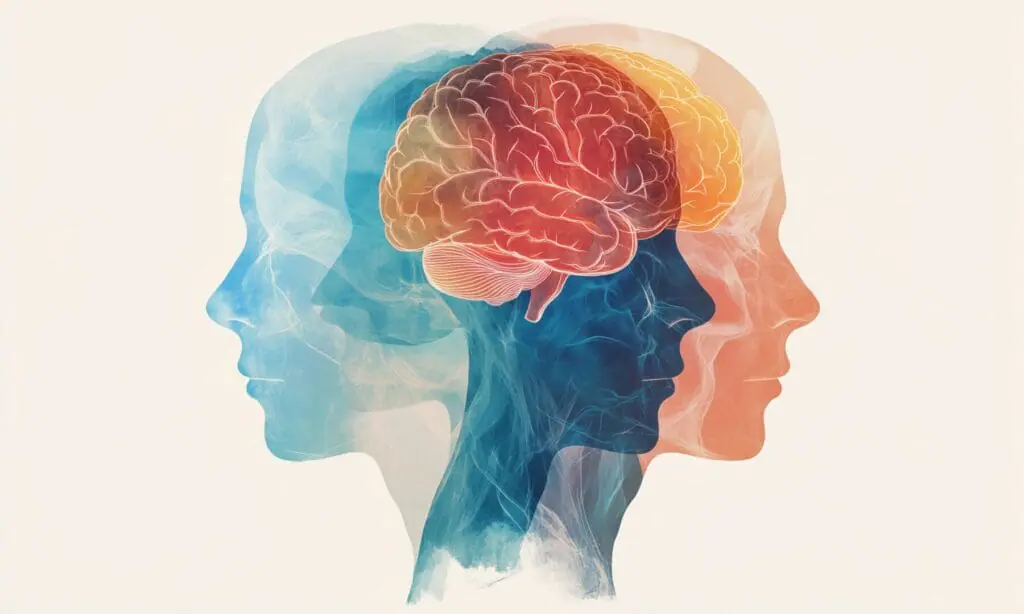Addiction is a challenging adversary, but treatment programs offer hope and the opportunity to heal and recover.
Addiction treatment isn’t just about sobriety from substances. Making the most of a treatment program helps you reclaim your autonomy, rebuild relationships, and rediscover a sense of purpose.
Addiction treatment can offer many benefits, but it’s important to remember that your recovery journey isn’t just about attending a program. You must actively engage with the process, take full advantage of all resources, and build a path toward sustainable recovery.
What to Expect When You Go to Addiction Treatment
Knowing what to expect once you arrive at an inpatient addiction treatment program can help you get a head start on making the most of your experience.
Addiction treatment includes a spectrum of tailored interventions to address the complexity of substance use disorders.
Things you might expect as part of treatment include:
- Assessment: When you first get an addiction treatment program, you’ll go through an evaluation. This will help your treatment team evaluate your substance use and its severity, diagnose co-occurring mental health disorders, and get to know more about your circumstances. The assessment is the basis for individual treatment plans.
- Multidisciplinary approach: Addiction treatment involves a multidisciplinary approach. You’ll work with many professionals, including doctors, therapists, and counselors. This collaborative approach helps your treatment team gain a holistic understanding of your treatment needs and provide care for all of them.
- Therapy: Different therapy modalities are central to treating addiction. These therapies foster resilience, help build coping skills, and promote insight. Evidence-based therapy approaches used in addiction treatment include motivational interviewing, dialectical behavior therapy (DBT), cognitive behavioral therapy (CBT), and family therapy, among others.
- Peer support: In an inpatient program, there’s a sense of belonging and peer support through group therapy and support group participation. You can learn from the encouragement and experiences of others navigating similar challenges to your own.
An inpatient treatment program, which is structured and immersive, helps you create a foundation for lasting recovery. The environment is safe and free from outside triggers and temptations, and you can focus completely on recovery in a controlled setting.
Making the Most of Addiction Treatment
When you have an opportunity to go to treatment, the following are some ways you can ensure that you’re maximizing your time to create long-term value for your recovery and quality of life.
Be Open and Honest
Commit to transparency with your treatment team about everything, including your history of substance use, your challenges, and your triggers. Your honesty enables your treatment team to tailor interventions to your specific needs, maximizing treatment effectiveness.
Being honest and transparent helps ensure that treatment is focused on addressing underlying issues and promoting lasting recovery.
Be Vulnerable
Vulnerability can be a strength in addiction treatment rather than a weakness, so try to embrace it. Let yourself share your struggles and express how you’re feeling. Seek support from your treatment providers and peers.
When you’re vulnerable, it helps you build authentic connections, and it facilitates introspection, promoting insight and breakthroughs in treatment.
Be An Active Participant in Therapy
Engage entirely in all of your therapy sessions, including exercises and assignments. By being an active participant in therapy, practicing your coping skills, and striving to apply the insights you gain during these sessions to real-world situations, you can take ownership of your recovery journey.
When you actively take part in therapy, it can accelerate your recovery while reinforcing positive behavioral changes. Invest the necessary time and effort in therapy to gain the insights and skills you’ll need to navigate challenges, overcome obstacles, and maintain your sobriety in the long term.
Tap Into Support Networks
Peer support groups and family therapy sessions are good ways to leverage support networks in treatment. Surround yourself with encouraging and empathetic people and create a sense of accountability.
Prioritize Self-Care
Prioritize self-care activities to nourish your mind and body. Activities like meditation, relaxation techniques, and exercise are helpful during treatment for emotional regulation and overall well-being.
Self-care is something that you can learn to do well after treatment to maintain your recovery.
When you practice self-care, it helps improve your resilience, reduce cravings, and mitigate relapse risk.
Stay Committed to the Process
Recovery isn’t a destination, but a journey. Stay committed to the process that starts in treatment, even when you face challenges or setbacks. Use every experience as an opportunity to learn, and that will bring you closer to lasting sobriety.
Stay focused on your goals, thinking about the long-term picture.
Making the Most of Therapy
You’ll likely participate in different types of therapy throughout your rehab experience, and there are specific ways to approach these sessions to maximize what you get out of them.
In CBT, engage fully in both your sessions and homework assignments. You’re working in this therapy to learn cognitive restructuring approaches so you can challenge negative beliefs and develop healthier ways of coping.
Outside of therapy, you can practice what you’re learning to reinforce the concepts of CBT. You can also keep a journal to help you identify patterns, reflect on insights you recognize during therapy, and track your progress.
In DBT, which combines elements of CBT with mindfulness, there’s an emphasis on acceptance and change. You’ll learn skills to manage emotional relationships and build distress tolerance.
Maximizing your DBT sessions can include regular mindfulness exercises, even outside of therapy. When you practice mindfulness in daily activities, you can reduce impulsivity and enhance your emotional regulation skills.
Be an immersed participant in DBT group sessions, which also helps with communication and boundary-setting.
Finally, during group therapy, you’re in a supportive environment of peers who are going through situations similar to your own.
In group therapy, express thoughts and feelings authentically. Be willing to listen to others encouragingly. You can also use group therapy to gain different perspectives, learn from others’ experiences, and receive constructive feedback.
Final Thoughts
Making the most of rehab activities and therapies involves being open to new experiences, being an active participant, and being willing to apply skills and insights into your daily life. When you wholeheartedly engage in therapy and other sessions, you can maximize the benefits of everything you do while in rehab, making for a more compelling journey toward lasting recovery.
If you’d like to explore treatment program options, learn more about recovery, or take the next step, contact San Diego Detox today.







